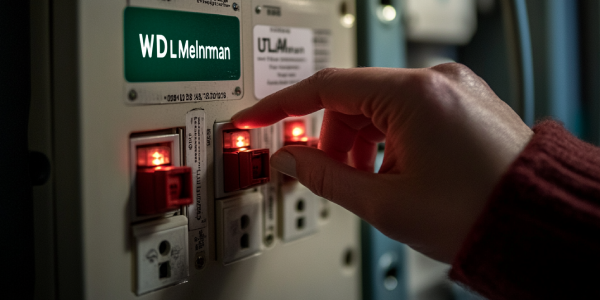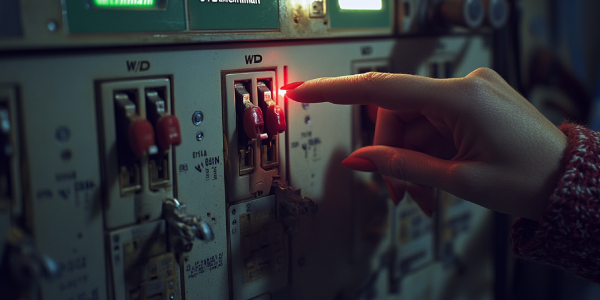
Imagine the unthinkable: a sudden power surge causes a hidden fault in your home’s wiring, leading to a catastrophic electrical fire or a potentially fatal electric shock. Unfortunately, this scenario isn’t as rare as we’d like to think.
With the warm, humid climate of Tweed Heads, the risk of electrical faults may be higher, making it essential to take every precaution. This is where Residual Current Devices (RCDs) come into play—life-saving devices designed to protect your home and loved ones from such dangers.
RCDs, often called safety switches, are critical components of any modern home’s electrical system. But what exactly do they do? An RCD continuously monitors the electrical currents flowing through your home’s circuits.
The device is designed to detect any imbalance between the live and neutral wires, which might indicate a leakage of current—a potential precursor to an electric shock or fire. An RCD acts almost instantaneously in such a fault, disconnecting the power supply within milliseconds. This fast response can mean the difference between a non-event and a serious accident.
Unlike traditional circuit breakers, which protect against overloads and short circuits, RCDs specifically target these dangerous leakages, providing an additional layer of safety.
Tweed Heads, with its coastal location and frequent humidity, poses unique challenges for homeowners when it comes to electrical safety. Moisture can increase the risk of electrical faults, particularly in older homes where wiring may not be up to current standards. RCDs are a regulatory requirement and a critical safeguard in such environments.
Reasons to installing RCDs in your home

Enhanced Safety
RCDs provide you with relief by significantly reducing the risk of electric shocks, which can be fatal. Whether a child is plugging in a device or someone is using a power tool outdoors, RCDs protect everyone in your home.
Fire Prevention
Electrical faults are one of the leading causes of house fires. By detecting and shutting off faulty circuits immediately, RCDs help prevent such disasters from occurring.
Compliance and Protection
In many regions, including Tweed Heads, local regulations require the installation of RCDs in new and existing homes. Compliance with these regulations keeps your home safer and protects you from potential legal liabilities.
Adaptability
Whether you’re renovating an older home or building a new one, RCDs can be easily integrated into your electrical system. They can protect individual circuits or be installed as a whole-home solution, ensuring maximum coverage.
Protect Your Home in Tweed Heads Today
Now that you understand the role that RCDs play in ensuring electrical safety, it’s time to take action. Don’t wait for an accident to happen—protect your home and family today by ensuring that RCDs are installed and properly maintained. Here’s what you can do
- Check Your Current System
If your home has RCDs installed, make sure they are tested regularly. A simple test button on the device can help you ensure it functions correctly. Experts recommend testing your RCDs every three months.
- Consult a Professional
If you’re unsure whether your home is adequately protected or if you need to install RCDs, consult a licensed electrician in Tweed Heads. They can assess your home’s electrical system and recommend the best RCD solution for your needs.
- Upgrade as Needed
Older homes in Tweed Heads may not have RCDs, or the existing devices may be outdated. Investing in an upgrade now can prevent costly and dangerous problems down the road.
- Spread the Word
Share this information with neighbours and friends. The more people in the community who understand the importance of RCDs, the safer everyone will be.
Installing RCDs in your Tweed Heads home is not just a matter of compliance—it’s a crucial step toward safeguarding your property and the people you care about. RCDs provide essential protection against the unique electrical risks the local environment poses, offering a safer living space. Don’t compromise on safety—take the necessary steps today to protect your home with RCDs.
